Measurement Worksheets for Ages 5-7 - Page 5
104 filtered results
-
From - To
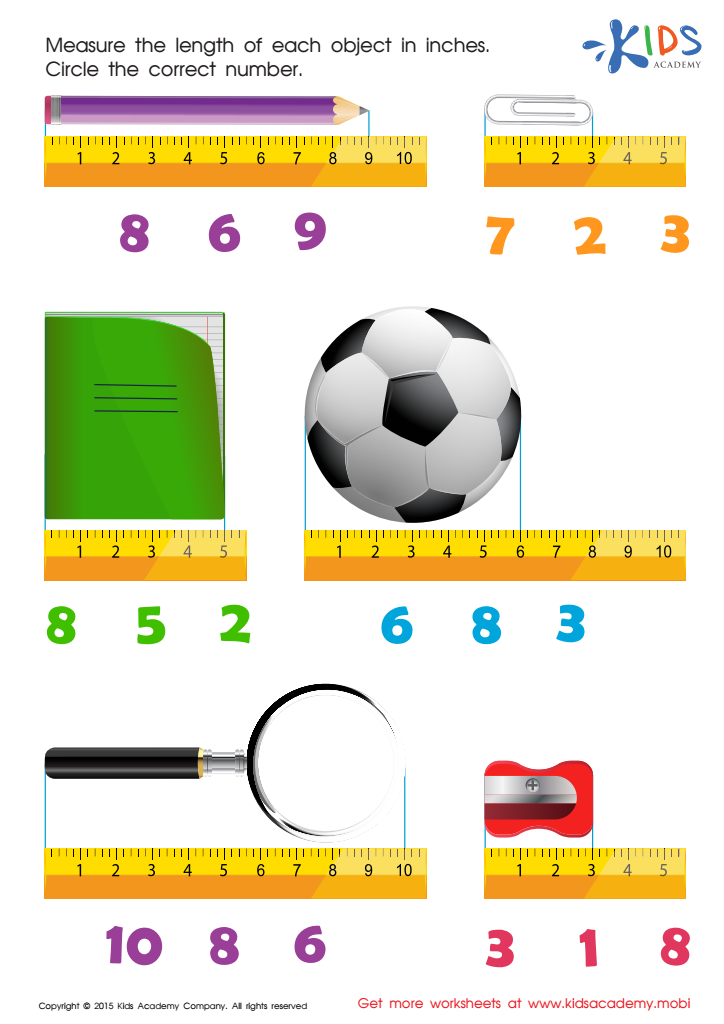

Learning measuring objects in inches Worksheet
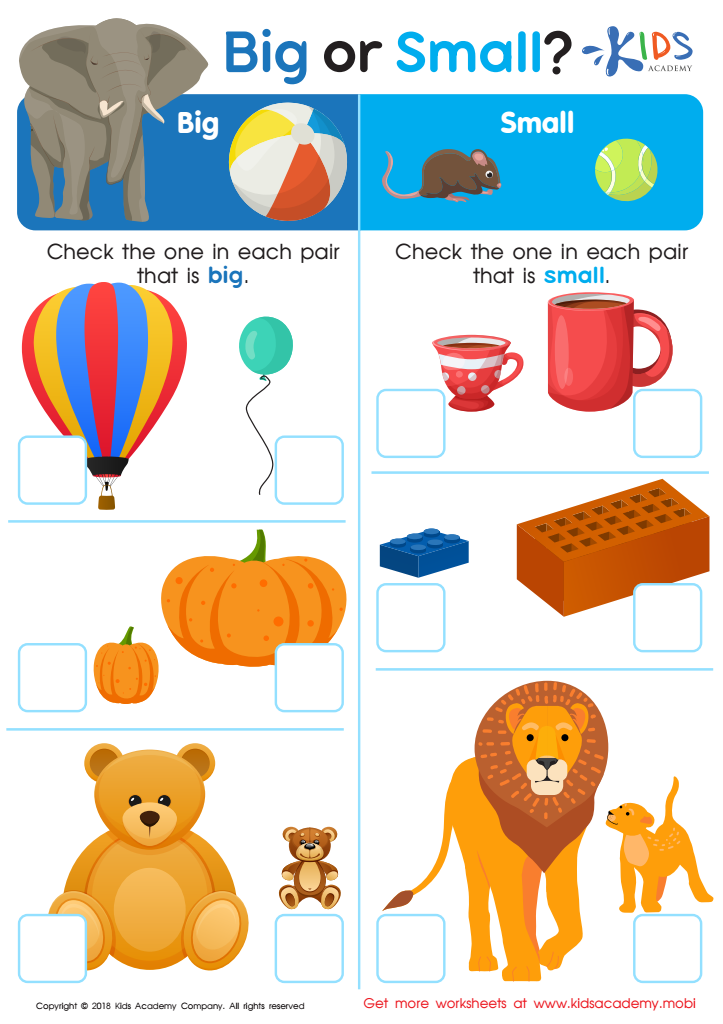

Big or Small? Worksheet
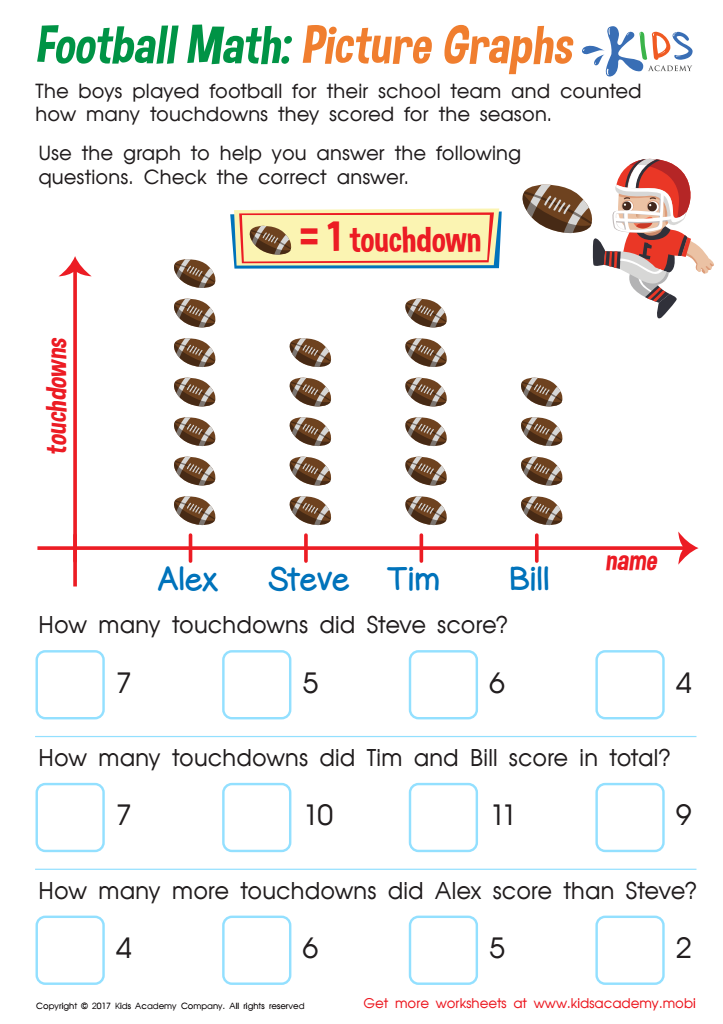

Football Math Worksheet
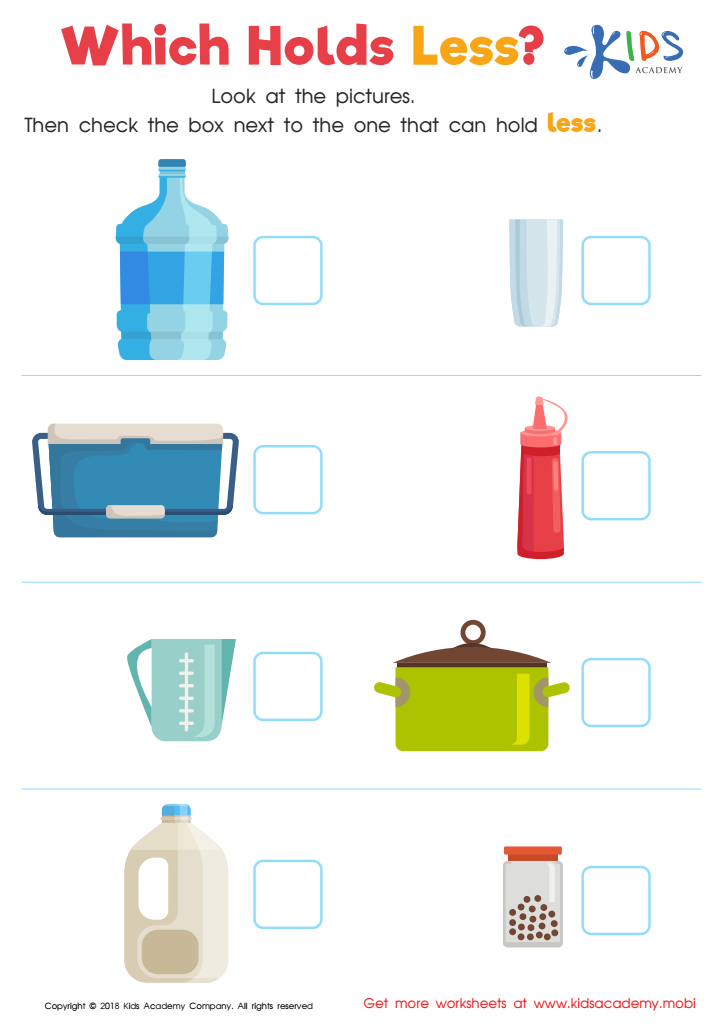

Which Holds Less? Worksheet
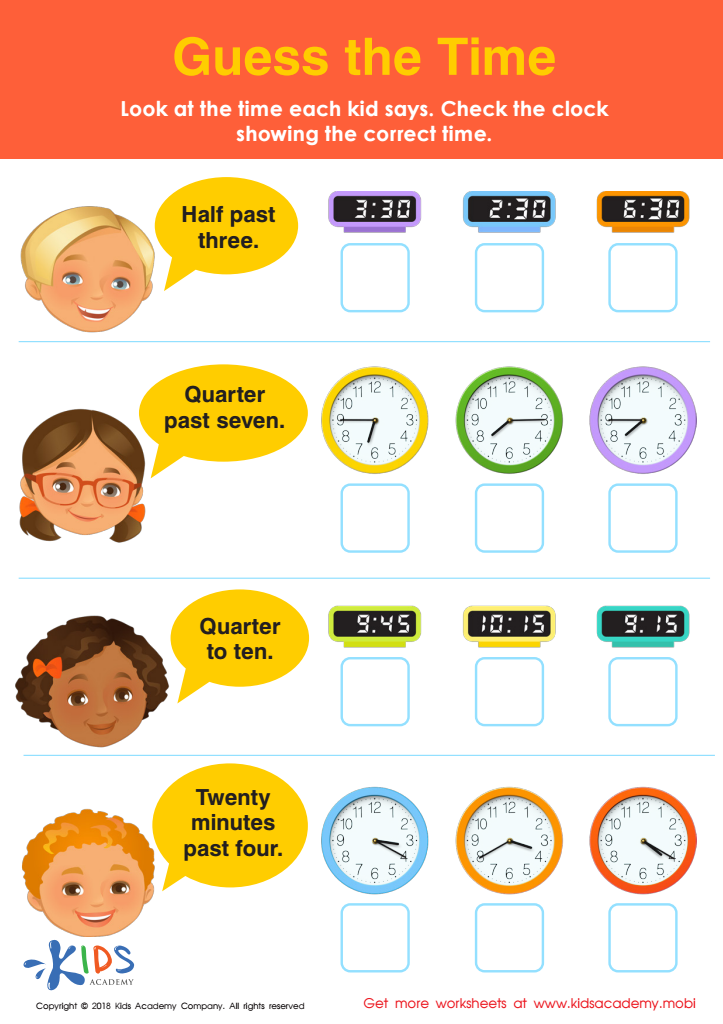

Guess the Time Worksheet
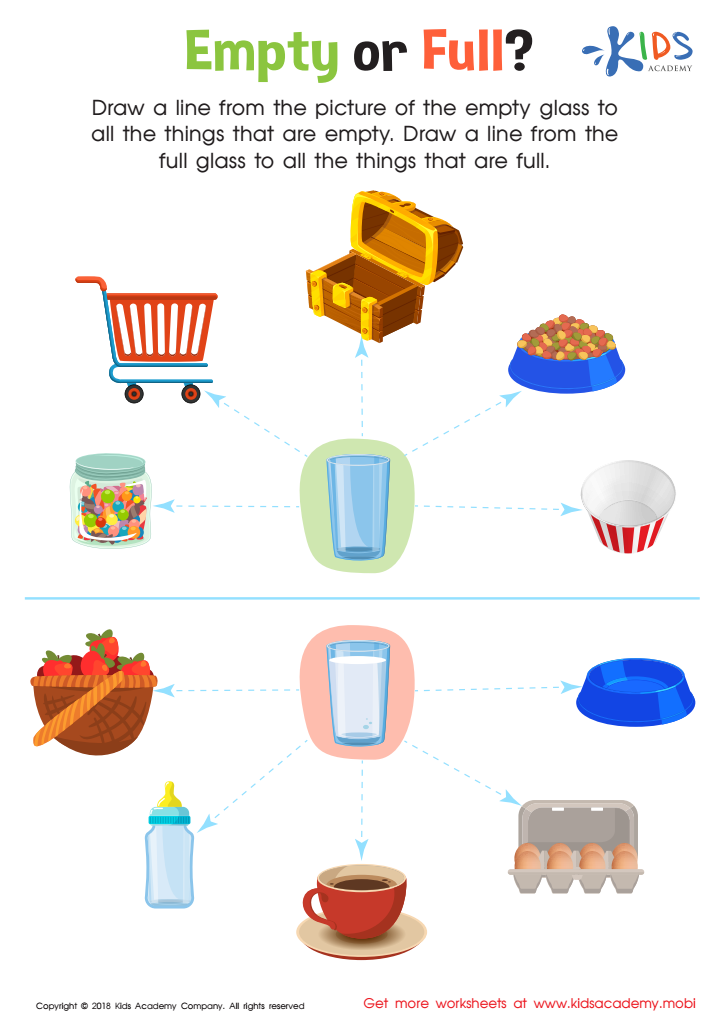

Empty or Full? Worksheet
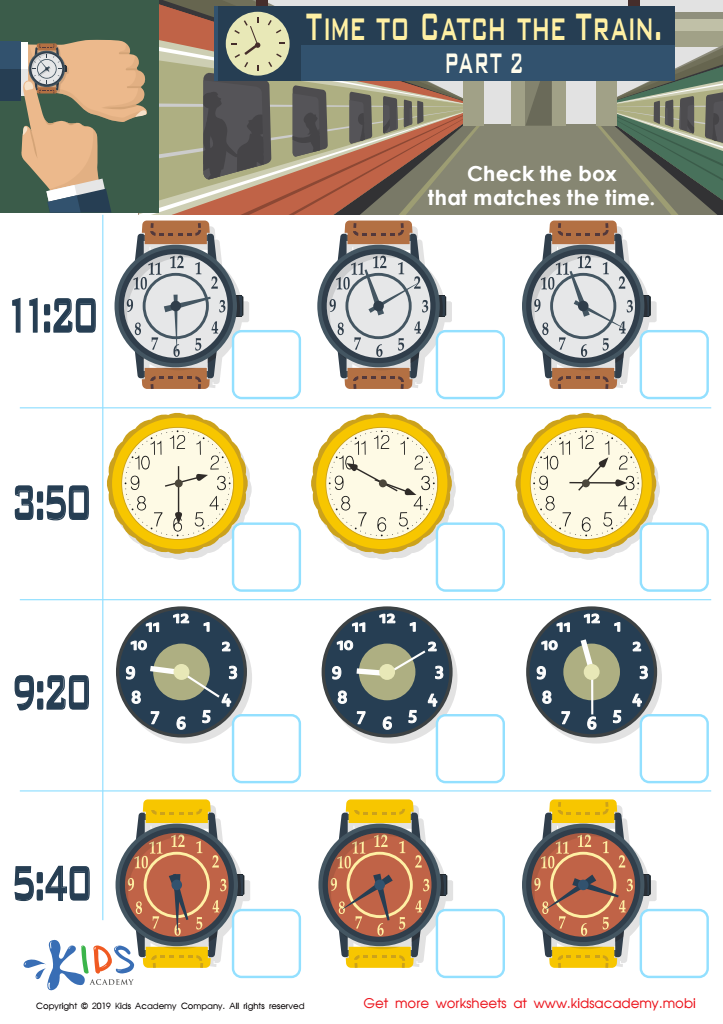

Time to Catch the Train Part 2 Worksheet
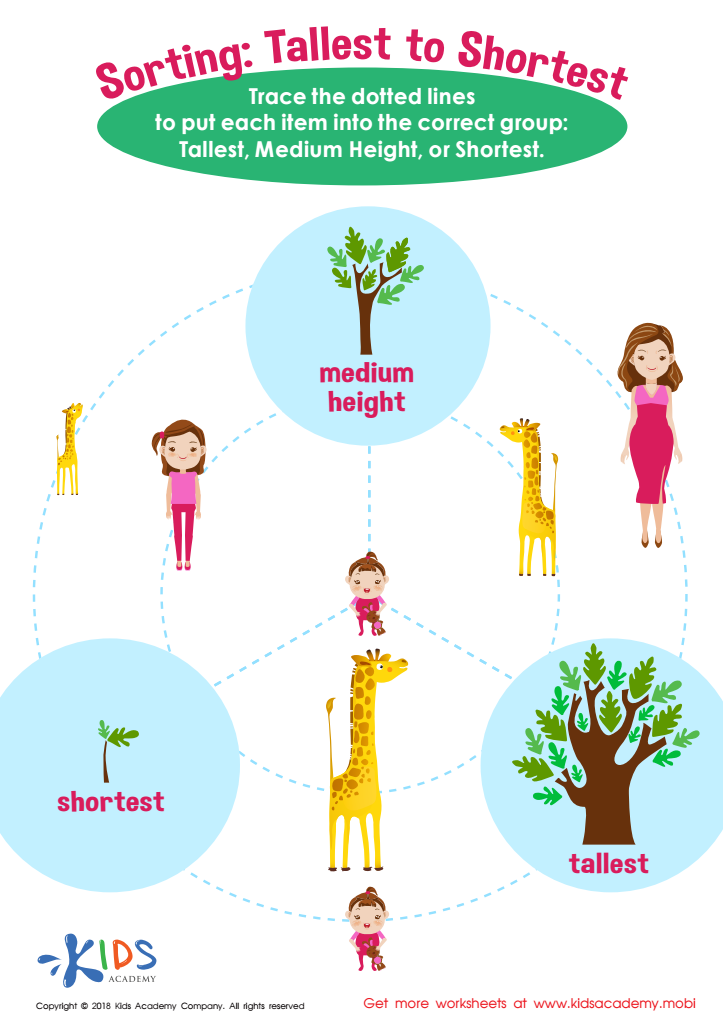

Sorting: Tallest to Shortest Worksheet
Measurement is a foundational skill that plays a crucial role in the early educational development of children ages 5-7. At this age, children are naturally curious about the world around them, making it an ideal time to introduce measurement concepts. Understanding measurement—such as length, weight, volume, and time—helps children develop critical thinking skills. It enables them to compare and quantify objects, which lays the groundwork for problem-solving and logical reasoning.
Moreover, measurement is a practical life skill that children will use throughout their lives. Activities such as baking, crafts, or even routines like timing an exercise session can be enriched by measurement knowledge. Engaging children in hands-on experiences, like measuring ingredients or discussing heights, supports their engagement and retention.
For parents and teachers, fostering measurement skills aligns with early learning standards and prepares children for future math concepts, ensuring they build confidence and competence in mathematics. By integrating measurement into everyday activities and learning, adults can help children connect theoretical concepts with real-life applications, enriching their educational experience. Ultimately, prioritizing measurement not only supports academic growth but also promotes a positive attitude toward learning, making it an essential area of focus during these critical early years.

 Assign to My Students
Assign to My Students
















